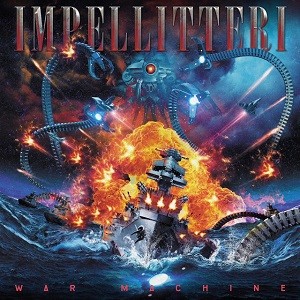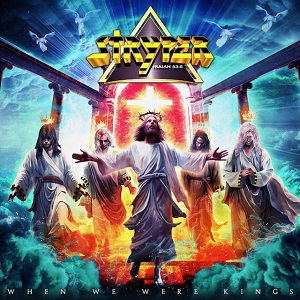SUPERSONIC REVOLUTION – All That Glitters…
June 26, 2023, a year ago
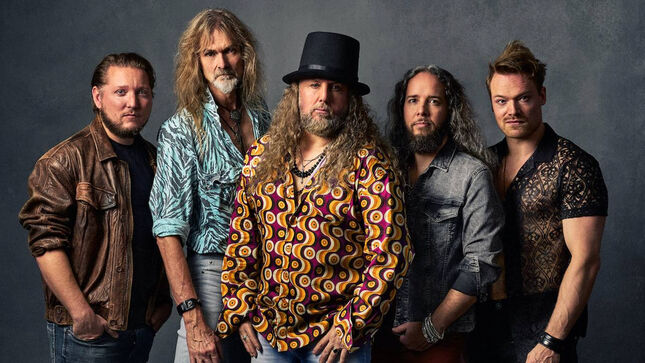
Arjen Lucassen has never been shy about his love for the '70s. It's an era that has always influenced his music, from his monolithic metal opera-oriented Ayreon albums to side projects including Stream Of Passion, Star One, The Guilt Machine, and his 2012 solo album, Lost In The New Real. So it goes that, holding true to his tradition of not doing back-to-back albums from any of his works, Lucassen's latest outing is a full-blown '70s classic rock album released under the moniker Supersonic Revolution, appropriately dubbed Golden Age Of Music. It's not merely flavoured like a blast from the past, mind you, but rather an unapologetic tribute to the age that created Lucassen.
Supersonic Revolution was born out of Lucassen contributing a cover of ZZ Top's "Heard It On The X" to a sampler issued by the German music magazine, Eclipsed. The rest is colourful in-your-face history.
Lucassen: "People are excited about the album, and I'm insecure, as always. It's something new, so there's the question of 'Will people like it?' It's not really prog, it's not really metal, it's just for old bastards like you and me (laughs)."
BraveWords: Supersonic Revolution is the stripped down version of Arjen Lucassen: Artist. What pushed you to form a full-on band rather than go the rock opera route?
Lucassen: "Just the fun we had doing that one ZZ Top cover. That was it. With Star One's last album (Revel In Time), there were 30 guest musicians and there was a lot of arranging, a lot of hassle, a lot of waiting for people to get their parts finished, and a lot of stuff I got in that I didn't really like. I didn't want to think anymore after that (laughs). I just wanted to have fun both musically and personally. We have this WhatsApp group, and it's like you and me; we're constantly insulting each other, that kind of humour (laughs). We clicked so much that I said 'Let's do a few more songs...' and before we knew it, we decided to make an album."
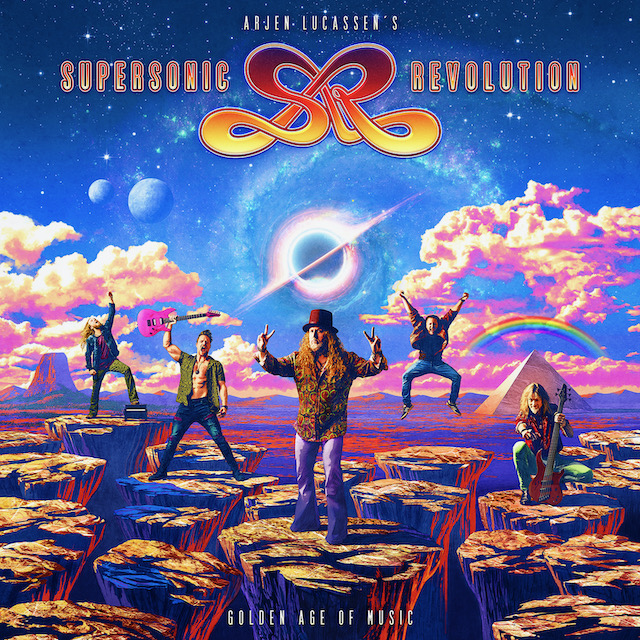
BraveWords: You're a self-professed control freak, so what was it like working in a band dynamic where everyone presumably gets to contribute to the music?
Lucassen: "I was sort of like the friendly dictator who has the last vote, but these guys are so incredibly good players. That's why I wanted to do this. I felt that I didn't have to dictate; I just sent them the music and told them to go for it, do whatever they wanted to do. I even allowed some people to write something, which was a big step for me (laughs)."
BraveWords: You're also the master of your own demise when it comes to doing these rock / metal operas because your typical production gets bigger and bigger as you go. Was it weird to realize it was you and four other guys, and that's it?
Lucassen: "It was a really a challenge. Can I do an album just with five people? And can I make it interesting? A lot of people always say with Star One and Ayreon, 'Oh, it must be so hard to work with all these musicians.' No, becaue I have the luxury of so many different voices and different moods coming from all sides. Now I had to do it with one singer, one guitar player, and so on. I can't impress people by saying 'I have Steve Vai, Michael Romeo and Adrian Vandenberg on my album.' I can say I have Timo Somers (ex-Delain) on my album; some people will know who he is, and other people won't. I'm constantly looking for challenges, and Supersonic Revolution is definitely that."
BraveWords: Did it come easy writing an album's worth of '70s classic rock songs, or did you have to dig deep to pull it off?
Lucassen: "It came really easy, and I think that was because of the chemistry in the band. The good thing about it is I look up to all of these guys."
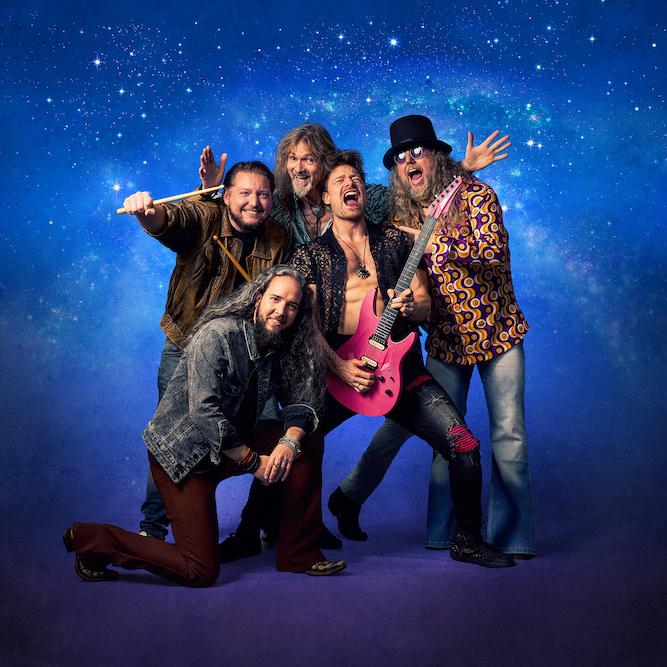
BraveWords: Joost van den Broek (keyboards) has been a part of your creative team for years, going right back to the first Star One tour (in 2002). Was it clear from the beginning that he would be a part of this band?
Lucassen: "I really look up to Joost, and he looks up to me. That's a great situation to be in. His ears are way younger and better than mine, so every mix I do, I send it to him and he gives me a list: this is too loud, that's not good, there's too much from the cymbals, and so on because I don't hear that anymore (laughs). Joost really helps me a lot, but he appreciates my composing skills. We each have our strengths. It's the same with the live shows; Joost does all the organizing and technical stuff, and I come up with the ideas for presentation. We're the perfect team. We never fight, and whatever we do, we don't have contracts. We don't need that anymore."
BraveWords: It seems that having a conceptual idea is the core of your artistic comfort zone. Supersonic Revolution's sound attests to that.
Lucassen: "Having a concept is a total comfort zone for me. Again, people say 'It must be hard to do a big concept album...' but no, it would be hard for me to write 12 different kinds of lyrics. Twelve different topics? I'm a one-track minded guy. For this album, it's about what impressed me in the '70s, which gave me a direction. I really respect these bands who write 15 or 20 lyrics about different things, and especially about current topics. I have no idea about current stuff, but I know all about the '70s (laughs)."
"The musical direction, I think it goes back to doing "Heard It On The X'. It's a '70s song and that's what gave me the idea. But, I didn't want to make is sound totally like a '70s album because that's already been done, and I can't do the '70s better than my heroes. And it was easy to make things sound different because three out of the five of us weren't alive in the '70s (laughs)."
BraveWords: Did you use analog gear to get that '70s sound, or is modern technology to thank for the vibe?
Lucassen: "The album was recorded with all the current technological advances, but all the instruments were basically vintage. Real amps, real speakers, real instruments, real microphones, drums without samples, and of course, a real Hammond organ. But, it was recorded and edited using Pro-Tools."
BraveWords: It's weird seeing a simple credit like "Arjen Lucassen - bass."
Lucassen: "(Laughs) I like playing bass much better than playing guitar. I'm confident on the bass. The guitar has all these strings and it's noisy... (laughs). You can just go for it and hammer away on the bass, and I love that. I'm not saying a bass is easier to play than a guitar, but for me it works better."
"On the ZZ Top cover, I played the rhythm guitars, and they're doubled so you hear them left and right. I felt with our own songs they should just be one guitar, and that was probably the biggest challenge for me because I'd never done that before. I have always built this wall of guitars on my albums. I grew up with Priest and Maiden, so it was always this wall of guitars, but in the '70s you didn't have that. When you listened to an early Van Halen album, Eddie was in a corner and the rest of the band was in the middle. It was weird but it worked because you could hear every note he was playing. The same with Ritchie Blackmore and Deep Purple. That was very hard for me because I'm a big stereo freak and there was a lot of space in the new songs. I kept trying to make the single guitar stereo, and I didn't like it."
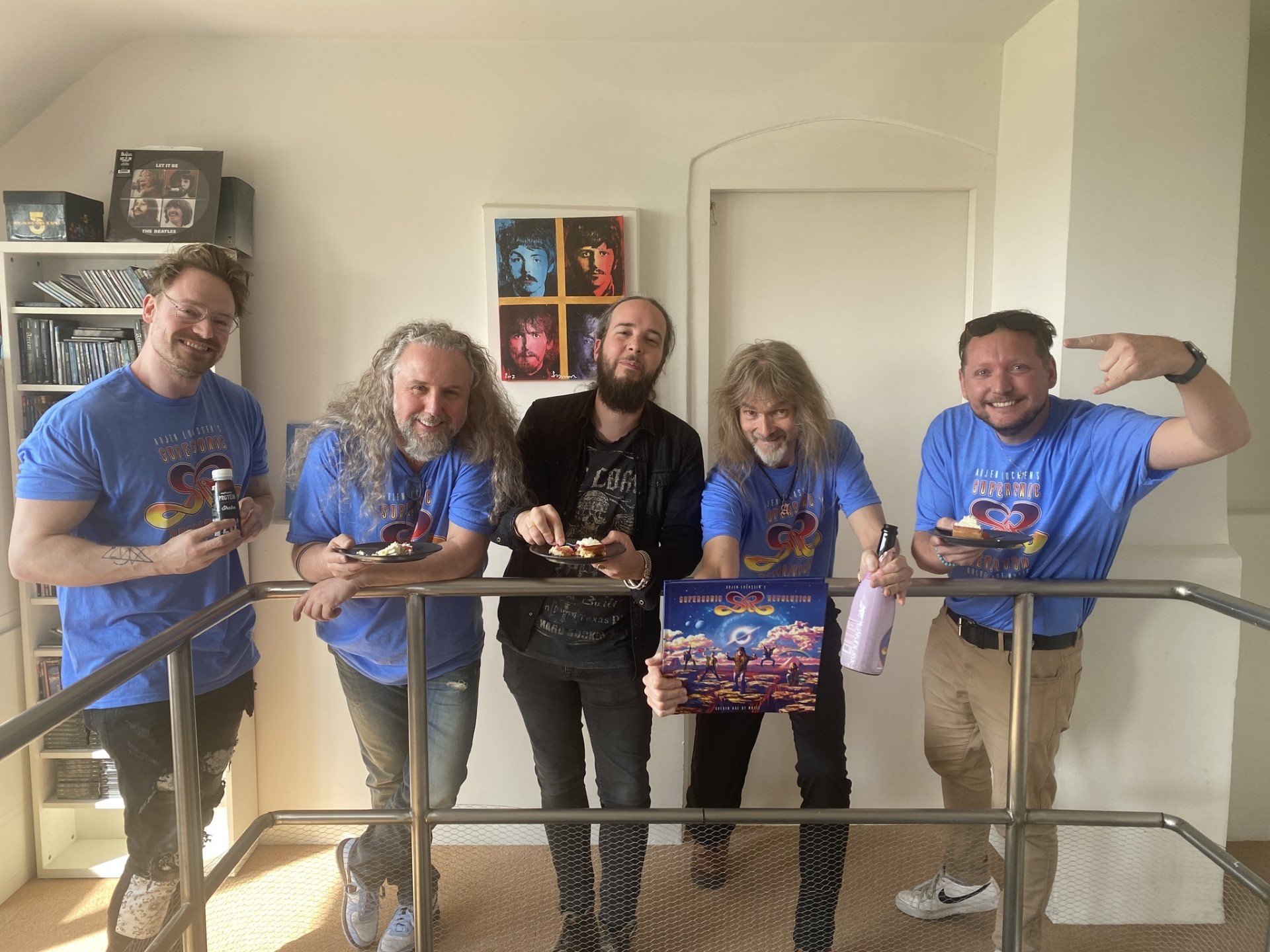
BraveWords: So that space in the songs was the equivalent of you running naked through the studio?
Lucassen: "Exactly (laughs). The riff has to be good. It's easy to impress people with a big sound, like Rammstein. But getting a good riff and a good vocal melody and impressing people with only that stuff is much harder."
BraveWords: Shortly after the release of the first single, Andy Scott of The Sweet offered some high praise for the track on social media...
Lucassen: "That was so cool. I'm such a big Sweet fan; 'Funny Funny' was the first single I ever bought. It was 1971, so I was 11 years old, and the Sweet was an underground band back then. Maybe in the UK they were huge, but here (in the Netherlands) you couldn't find those singles very easily. The Sweet were a huge inspiration for me."










